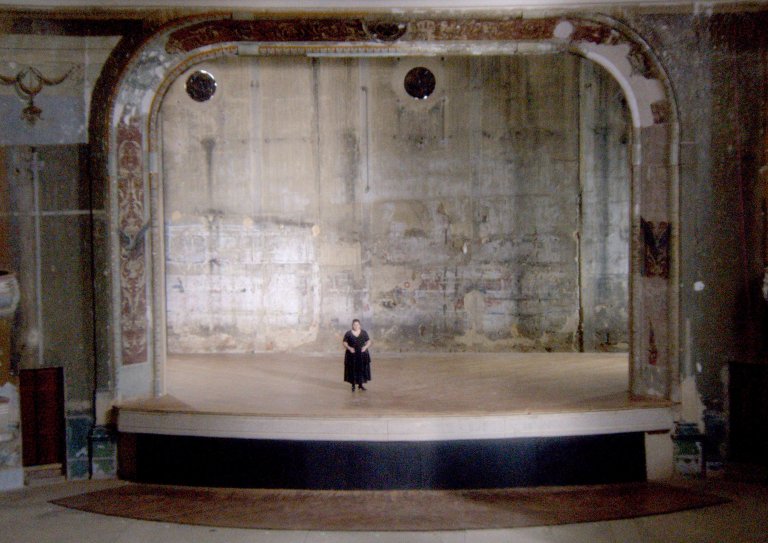FILMS AS FREEDOM MANAGEMENT
Brais Romero Suárez
To write about Laura Huertas Millán in such a short text implies the risk of leaving some of the multiple dimensions of her work in the inkwell. Her finesse with the camera is able to represent the first settlers in the Americas in an almost lysergic way, to capture the traumatic reality of an opera performer condemned to sing the silence. Her films combine classic narrative techniques with a potent use of voice over, which does not complement the story or lead it, but opens the door to new interpretations of the same image. A sort of ethnofiction that seeks to delve into issues such as colonialism and a look, sexual identity.
Ethnofiction is perhaps the most appropriate term to encompass this type of cinema that, from a rigorous perspective, does not close the door to more narrative paths or to the director's own intervention in her own films. In a time when we are still debating between fiction and documentary, Laura Huertas stands firmly with one foot in each field, using the tools she needs most depending on the moment.
To divide her work into themes would be to close the door to interpretations that go through all her filmography like invisible threads that weave each of the films by the Franco-Colombian filmmaker. For example, is that colonizing vision that accompanies Journey’s reconstructed discourse not the same vision that, ironically, is the focus of the initial segment of The Labyrinth? Or, is that artisanal contrast of women who weave freely before a globalised world in which marriage is the utmost to pursue, not the same one that condemns Antonia to be seen as an outsider within her own family?
If we look at her filmography as the result of a still unfinished tapestry, we could observe different artistic manifestations (delusions of conquerors, family confessions, etc.) that exist while Laura the filmmaker weaves it. “I like to weave because nobody bosses me around”, says one of the women in La Libertad, a phrase that resembles Laura herself, standing up against a film industry mostly dominated by a European white male perspective.
Therefore, we need to leave the script behind and move on to the images and the voice. The films by Laura Huertas Millán have their own voice and a text will always be unable to encompass or summarise the dimensional multiplicity that it encompasses. So, let us think of these paragraphs not as a commentary on her filmography, but as an invitation to submerge ourselves into it. Without prejudice, with open eyes and with an awakened mind.
Laura Huertas Millán is a Franco-Colombian artist and filmmaker. With a PhD in Visual Arts from the PSL University (SACRe program), she was part of the Sensory Ethnography Lab at Harvard University. Her films interweave ethnography, ecology and fiction, narrating different strategies for survival, resistance and resilience against violence. Her works have been presented at film festivals such as the Viennale International Film Festival, the Toronto International Film Festival, the New York Film Festival, the International Film Festival Rotterdam, the Havana Film Festival, FICValdivia and Cinéma du Réel; and she has won awards at the Locarno International Film Festival, FIDMarseille, Doclisboa and Videobrasil, among others. Retrospectives of her films have been presented in the Film Library at Harvard University, at the CCA (Glasgow), the CA2DM (Madrid), at the Mar del Plata Film Festival, at the ICA (London), in the Flaherty Seminar and the Toronto Film Library. Among her collective exhibitions and screenings are the “Future Generation Art Prize” parallel exhibition at the Venice Biennale (2019), FRONT Triennial (Cleveland, 2018), “Nuevos Nombres” Bank of the Republic of Colombia (Bogotá, 2018), “Prospectif Cinéma” Centre Pompidou (Paris, 2017), “À la lisière du quotidien” Jeu de Paume (Paris, 2017) and “Tropical Uncanny” Guggenheim Museum (New York, 2014).
Read more
View less




